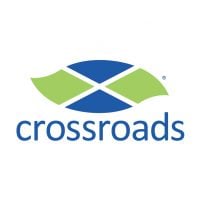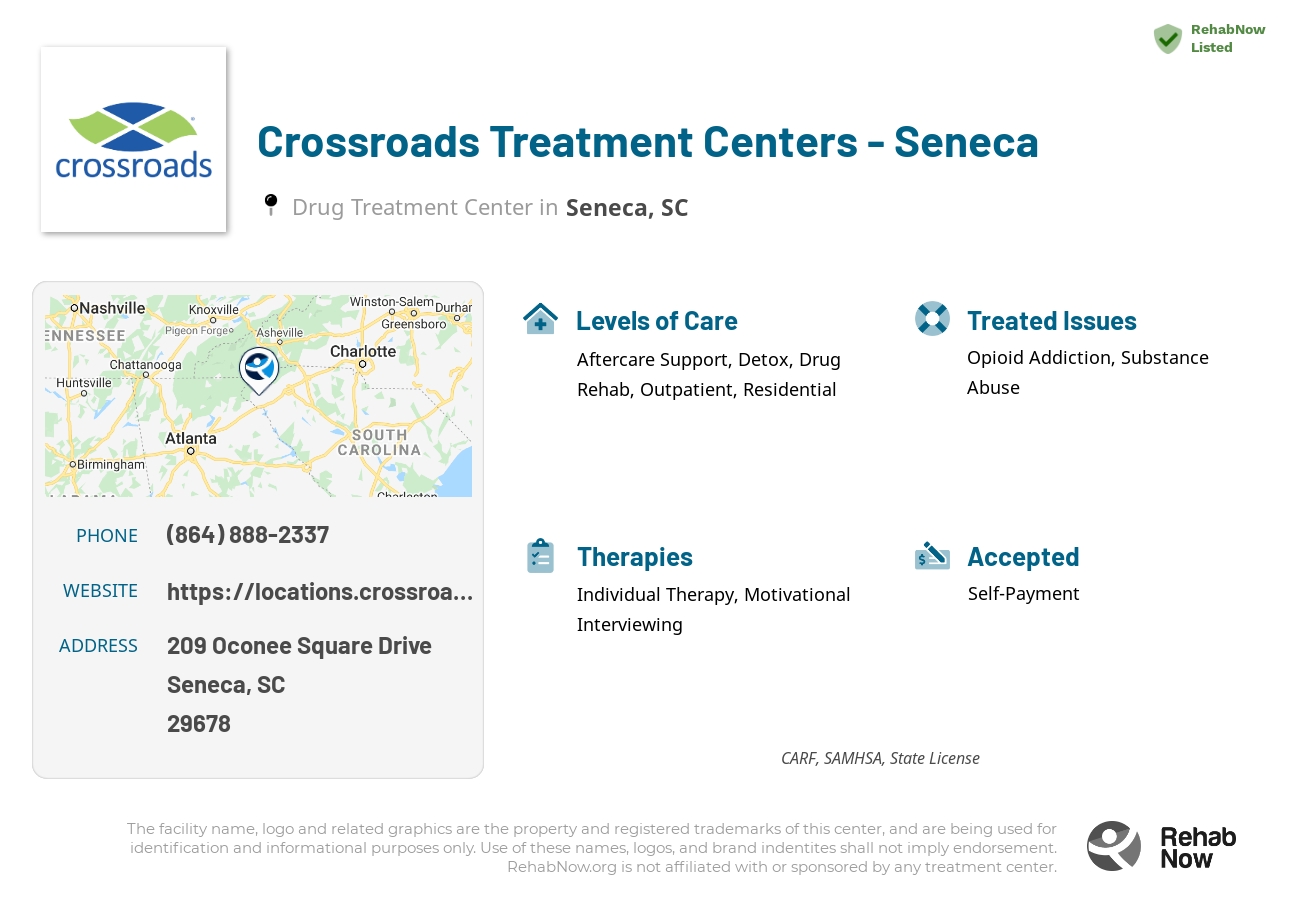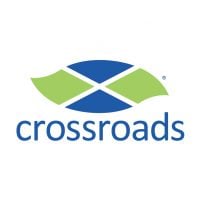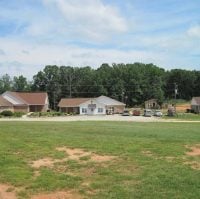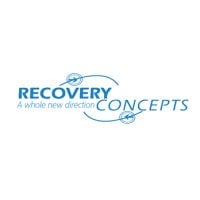Crossroads Treatment Centers - Seneca
Drug Rehab Center in Seneca, South Carolina
Crossroads Treatment Centers in Seneca, South Carolina, provides addiction treatment services, including medication-assisted treatment, on outpatient, residential, or detox levels, with accreditation from various reputable organizations, offering comprehensive care to aid in lasting changes.
About Crossroads Treatment Centers - Seneca in South Carolina
Crossroads Treatment Center, nestled in the heart of Seneca, South Carolina, stands out as a beacon of hope for individuals on their journey to sobriety from drugs and alcohol. This facility is renowned for its innovative approach toward recovery, emphasizing medication-assisted treatment (MAT). With a commitment to medical equity, Crossroads ensures that all clients, regardless of background, receive top-notch, affordable care. Accepting a wide range of insurance plans, including Medicaid and Medicare, makes access to their services seamless for many.
- Providing medication-assisted treatment with FDA-approved medications like methadone and suboxone, Crossroads introduces a science-backed approach to reduce cravings and withdrawal symptoms.
- Their comprehensive care model combines MAT with essential counseling services, including individual and group therapy, to foster the development of healthy coping mechanisms and habits.
- Crossroads Treatment Center prides itself on offering equal and effective care to all clients, thereby enhancing medical equity in addiction treatment services.
Crossroads Treatment Centers - Seneca holds prestigious certifications and accreditations from LegitScript, SAMHSA, the State License, and CARF, ensuring that they meet the highest standards of quality and ethical practices in addiction treatment. Their outpatient program is designed to fit around the lives of adult clients, allowing them to receive treatment while maintaining their day-to-day responsibilities.
Focused on the battle against opioid addiction alongside other substance abuse disorders, Crossroads uses a combination of medication, counseling, and tailored treatment plans. This inclusive strategy ensures that individuals have access to a continuum of care, from detoxification to aftercare support, necessary for a successful recovery journey.
Genders
Ages
Modality
Additional
Accreditations
State License
SAMHSA

LegitScript

CARF
The Commission on Accreditation of Rehabilitation Facilities (CARF) is a non-profit organization that specifically accredits rehab organizations. Founded in 1966, CARF's, mission is to help service providers like rehab facilities maintain high standards of care.
Conditions and Issues Treated
A combination of treatments is often needed to treat drug abuse. Some addictions can be treated with counseling and support groups. In other cases, drug abuse can lead to a medical problem and require medical treatment. Treatment for drug addiction typically combines counseling and psychotherapy with medication and behavioral therapies.
A combination of treatments is often needed to treat drug abuse issues effectively. In the case of drug abuse, there is no easy answer or one-size-fits-all cure.
Opioid addiction has become a significant health problem in the United States. In 2015, there were 91 opioid overdose-related deaths per day, with a substantial increase in mortality rate in 2014.
When opioid addiction has reached a point where a person’s life becomes unmanageable, treatment options are available to help them get sober. Treatment that includes medical care with medications and counseling can help a user transition into sobriety.
Levels of Care Offered
This center offers a variety of custom treatment tailored to individual recovery. Currently available are Aftercare Support, Detox, Drug Rehab, Outpatient, Residential, with additional therapies available as listed below.
One of the first things an addict should do when entering treatment is to abstain from using illicit drugs completely. Depending on the length of time that the person has been using, the addict may have to go through alcohol or drug withdrawal. Fortunately, detox doesn’t have to be done alone, and withdrawal symptoms can be managed medically in an inpatient or outpatient setting. While detox may be uncomfortable, it is not life-threatening. Detoxification allows the addict to rid the body of all traces of drugs or alcohol and gives the addict a clean slate for their recovery.
Outpatient treatment is often used for drug addicts in drug rehab. Outpatient treatment consists of counseling and therapy sessions. This form of treatment is also called ‘day-treatment’. The outpatient treatment process begins with the addict’s initial detox period, lasting about ten days.
Outpatient treatment is used for those who are at moderate risk for ‘slipping back’ into the addiction, for those who:
- Are not currently experiencing any side effects from withdrawal and can handle social pressure
- Can handle stressors that might trigger relapse
- Have a stable living environment or have moved out of their previous environment, which was not conducive to being sober
- Have a support system that allows them to go to a facility a few times a week while still keeping their current responsibilities
- Have no legal obligations, being either on parole or probation, that require them to seek treatment at a mandatory facility
- Are not currently experiencing any side effects from withdrawal and can handle social pressure
- Have a stable living environment or have moved out of their previous environment, which was not conducive to being sober
Residential treatment programs are those that offer housing and meals in addition to substance abuse treatment. Rehab facilities that offer residential treatment allow patients to focus solely on recovery, in an environment totally separate from their lives. Some rehab centers specialize in short-term residential treatment (a few days to a week or two), while others solely provide treatment on a long-term basis (several weeks to months). Some offer both, and tailor treatment to the patient’s individual requirements.
Completing a drug or alcohol rehab program is only the first step. Then comes aftercare support. These services include sober living accommodations, career counseling, and AA/NA programs for those struggling with sobriety or who want help maintaining it after initial rehab at an addiction facility.
They can last up to a year or more depending on what’s needed most urgently after the earlier stages are completed.
Therapies & Programs
Because no single treatment is effective for all addicts, the goal of treatment and therapy should be to figure out what works best for each individual. Tolerance and withdrawal levels differ from person to person, affecting the treatment intensity required. Addiction treatment should aim to help addicts develop healthy coping mechanisms for dealing with their addiction and its underlying causes.
Cognitive-behavioral therapy is a technique that is used to help people with addiction. Specifically, it is a way of identifying thoughts and behaviors that cause the addiction. It is typically used in an individual counseling session.
The content explains cognitive behavioral therapy and how it works to address some behaviors that may be leading to unintended consequences in their life, as well as its benefits for those seeking sobriety.
It works by helping people to talk through their issues and addressing the thoughts that cause said behaviors. It is an excellent way of learning about oneself and one’s perception of the world.
Payment Options Accepted
For specific insurance or payment methods please contact us.
Crossroads Treatment Centers Associated Centers
Discover treatment facilities under the same provider.
Learn More About Crossroads Treatment Centers Centers
Additional Details
Specifics, location, and helpful extra information.
Seneca, South Carolina 29678 Phone Number(864) 888-2337 Meta DetailsUpdated April 15, 2024
Staff Verified
Is Crossroads Treatment Centers – Seneca a LegitScript Verified Treatment Facility?
According to our most recent records, we have found this center to be LegitScript verified.
Crossroads Treatment Centers - Seneca Patient Reviews
There are no reviews yet. Be the first one to write one.
Seneca, South Carolina Addiction Information
More than 610,000 of South Carolina residents, or a staggering 11.9% of the state population, uses illicit drugs and another 230,000 residents abuse alcohol every year. A majority of the illegal drugs used and abused are opioids. Marijuana use and underage drinking occur amongst the young residents of this state–though at a lower rate compared to the national average.
Prescription opioids (e.g., oxycodone, hydrocodone) are the most commonly abused drugs in Seneca, SC. Easy access to drugs, combined with high rates of poverty and crime, makes Seneca a hotbed for drug activity. The average age of first use for drugs in Seneca, South Carolina is 16. There are treatment options available for those struggling with drug addiction and abuse.
Treatment in Nearby Cities
- Marion, SC (207.3 mi.)
- Abbeville, SC (49.4 mi.)
- Barnwell, SC (136.6 mi.)
- Rock Hill, SC (112.2 mi.)
- Ruby, SC (159.1 mi.)
Centers near Crossroads Treatment Centers - Seneca
The facility name, logo and brand are the property and registered trademarks of Crossroads Treatment Centers - Seneca, and are being used for identification and informational purposes only. Use of these names, logos and brands shall not imply endorsement. RehabNow.org is not affiliated with or sponsored by Crossroads Treatment Centers - Seneca.
